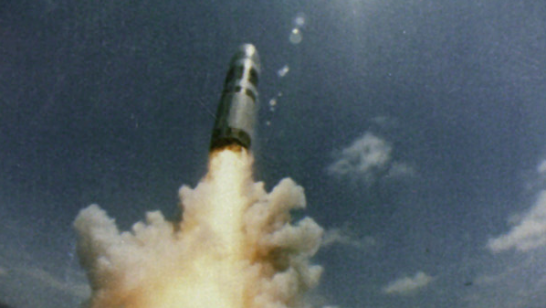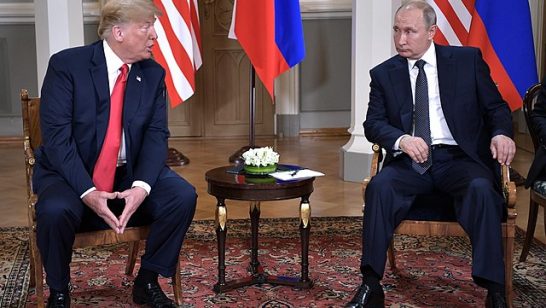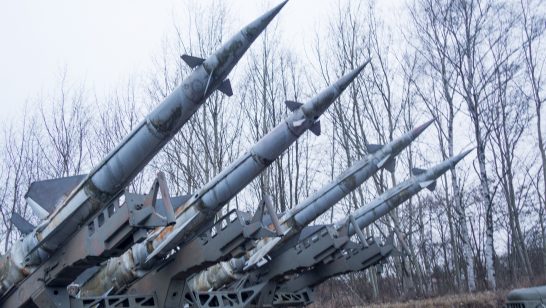
When I was eighteen years old, I met former US Secretary of State George P. Shultz for the first time. Former US Secretary of Defense William J. Perry introduced us in California before we all travelled to Singapore for a global meeting of former and current leaders interested in nuclear issues. As a young American studying international affairs at the time, I found Secretary Shultz to be utterly mythical – a man of so many multitudes that all he could register in my mind as was an impossibility. He had advised three American presidents and remains one of only two people in US history to have held four different federal cabinet posts. Secretary Shultz’s ingenuity and diplomatic prowess bent the arc of history – even Soviet President Mikhail Gorbachev credited him with having ended the Cold War. However, what I learned over the years is that his true genius lay in his style, wit, charisma, empathy, and deep love for his country and the planet.
Before I could even grasp the magnitude of his presence, he began telling a story. Over the years, this became a familiar experience for those who had the pleasure of spending time with him. Secretary Shultz imparted knowledge through his remarkable life experiences in a way that resonated with your soul. His stories were not just stories; they were lessons. Secretary Shultz would speak at length on the importance of strength of purpose, emphasising that one should never underestimate the power of small acts of kindness and bridge-building and that relationships based on trust and respect are integral to success.
In diplomacy, Secretary Shultz said there should be a “playbook” consisting of five steps: (1) execution is the name of the game, so make sure you set things up that you can actually execute; (2) take off any rose-coloured glasses and be realistic; (3) know and show your strength of purpose; (4) be observant and recognise openings for engagement; and (5) think out what your agenda is and then engage on it energetically. Secretary Shultz argued that by following these simple rules, the West could have better-prepared diplomats for difficult tasks, such as easing tensions with Russia. After all, he said, “it worked with Soviet leaders, so why couldn’t it work now?”
I vividly remember him recollecting his experience at the Reykjavik Summit, where Presidents Ronald Reagan and Mikhail Gorbachev pondered the complete elimination of all nuclear weapons. Until that moment, this bold idea had only ever been thrown around by either side but had never been seriously considered in such a formal setting. Despite immense pushback from his colleagues, Secretary Shultz agreed with President Reagan’s vision, as he felt at his core that this was what the world should be aspiring to. He continued to campaign on the existential threat posed by nuclear weapons, and later climate change, for the rest of his life. To achieve this, he lobbied officials across the world for their active support and helped create regional networks of leaders to open political space for dialogue, education, and action on the steps toward a world without nuclear weapons. The European Leadership Network is one of these networks.
With the mantra that “a nuclear war cannot be won and must never be fought” in mind, the summit importantly defined the contours of the future Intermediate-Range Nuclear Forces (INF) and Strategic Arms Reduction (START) Treaties. It is heartwarming to know that despite the recent demise of the INF Treaty, Secretary Shultz witnessed not only the successful implementation of START but also its successors, START II and New START. I remember helping bring American and Russian students together to sit down with Secretaries Shultz and Perry in 2016 two days after then-Vice President Biden had convened a small meeting on how to improve US-Russia relations. Secretary Shultz remarked that despite the disintegration of relations that had grown out of the 2014 crisis in Ukraine, New START and its “breath-taking” verification measures continued to provide predictability and transparency. I am pleased that he lived to see now-President Biden extend the Treaty for five years just a few days ago.
Secretary Shultz’s successful diplomacy hinged on relationships that he cultivated and built over time, and he never shied away from learning as much as he could about his friends and adversaries alike. Before the era of nuclear summitry, he realised after returning from a trip to China that President Reagan had never had a substantive discussion with a Communist leader before. Since he was having weekly meetings with Soviet Ambassador to the US Anatoly Dobrynin to “pick any weeds before they grew out of control”, he fielded the idea of inviting the Ambassador to the White House. President Reagan thought it was a great idea, and the meeting between them all lasted over two hours.
Out of the many topics that the US President had raised with the Soviet Ambassador, it was the group of Pentecostal Christians who had sought refuge in the US Embassy in Moscow that was of particular importance to him. As a result, the Soviets agreed to consider the emigration of these individuals. He often referred to this incident to remind me and others to never underestimate the power of dialogue and bridge-building on issues that we consider in the moment to be of small magnitude or limited consequence. The successful emigration of a handful of people from the Soviet Union was the start of US-Soviet contact that would one day grow to deal with issues that affected millions.
When Secretary Shultz was asked what he wanted to be remembered for the most in his career, he answered that it was these small moments of triumph, the moments that gave people a new chance at life. He remembered those he helped emigrate out of the Soviet Union by name. He was highly cognizant of the human dimension of the United States’ relationship with other countries and was an ardent defender of human rights, as well as a supporter of cultural and peer-to-peer exchanges, especially for young people. His commitment to getting the next generation of leaders prepared to tackle threats, both new and old, remains unparalleled. After all, the campus that houses the US Foreign Service Institute where American diplomats are trained to this day is named after him.
Secretary Shultz often reflected on his experiences as a young man during the Second World War. At the end of the war, he said that people looked back at the grave devastation that had occurred through the previous decades and said, “What a crummy world, and we’re part of it whether we like it or not”. Now, I am the same age that he was then and feel similar dread about the state of global affairs. However, Secretary Shultz’s life shows us that it is possible to rebuild and rethink.
Perhaps more than anything else, being a Marine during the Second World War shaped his outlook on life. I will never forget when he shared that, while training in the Marine Corps, he was told by a sergeant, “Take good care of this rifle. It is your best friend, and remember one thing: never point it at anyone unless you’re willing to pull the trigger.” It was this story that he would tell to underscore that in life, one should not make empty threats or promises. To him, you were truly as good as your word.
As a soldier who had friends in arms killed next to him in battle, he had a deep awareness of the generational trauma of conflict. Years later when he was the US Secretary of Treasury, Secretary Shultz went on a spontaneous trip to Leningrad with Soviet Minister of Foreign Trade Nikolai Patolichev after a routine meeting in Moscow. Secretary Shultz would often recount how Minister Patolichev took him to the Leningrad Cemetery, where they walked down the centre aisle as funeral music played in the background.
The translator was weeping so profusely that she fell back with the crowd that was following them. Tears streamed down Minister Patolichev’s face as he described the toll that the Second World War had on practically every family in the Soviet Union. When they returned to the platform overlooking the cemetery, Secretary Shultz did what he considered any decent Marine should do. He faced the mass graves of over half a million lost souls, stood tall with his arms by his side, and honoured them with a long salute. Even years later, when he was dealing with the Soviets during arms control negotiations, many people mentioned this story. He always said that the lesson was never to hesitate to give respect where it is due.
It is this image of Secretary Shultz that will be emblazoned in my mind as we carry his legacy forward. He lived unapologetically in pursuit of bold visions for what we can achieve through dialogue. While he always saw strength as a key component to success, trust borne out of respect, empathy, and friendship was really the “coin of the realm”. He will be remembered and missed internationally as one of the last great statesmen of his time, but more importantly to him, he will be remembered and missed simply as a great man.
•••
This Memoriam is based on the author’s personal conversations with the late US Secretary George P. Shultz.
The opinions articulated above represent the views of the author(s) and do not necessarily reflect the position of the European Leadership Network or any of its members. The ELN’s aim is to encourage debates that will help develop Europe’s capacity to address the pressing foreign, defence, and security policy challenges of our time.



